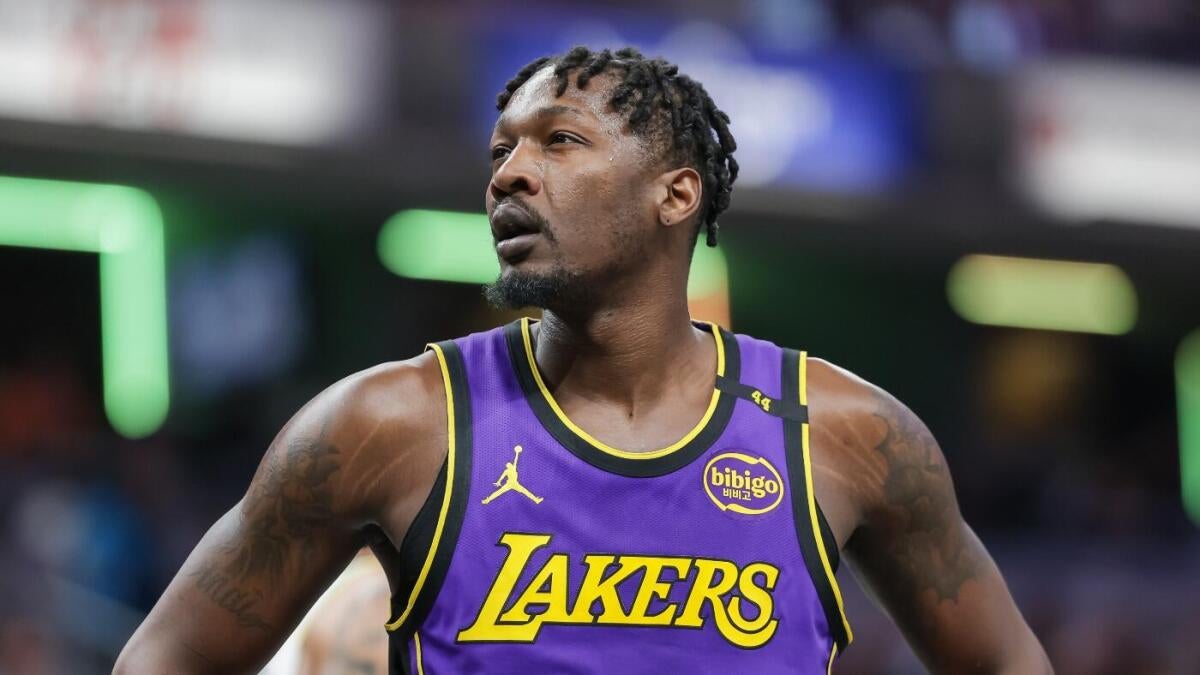Dorian Finney-Smith’s recent signing with the Houston Rockets on a four-year, $53 million deal has sent ripples through the NBA, marking a pivotal moment in free agency and reshaping the competitive landscape of the Western Conference. This move, confirmed by sources including ESPN’s Shams Charania, offers a compelling case study in player valuation, team-building strategy, and the evolving dynamics of modern basketball.
Finney-Smith’s Career Context and Role
Dorian Finney-Smith has established himself as a quintessential “3-and-D” wing player, a role that has become increasingly valuable in today’s NBA. His ability to defend multiple positions while providing reliable three-point shooting makes him a versatile asset for any contending team. Prior to joining the Rockets, Finney-Smith played a crucial role with the Los Angeles Lakers, where his defensive tenacity and perimeter shooting were instrumental in their success. His decision to opt out of a $15.4 million player option with the Lakers underscores his confidence in his market value and his desire for a more stable, long-term contract.
Despite currently rehabilitating from an ankle injury, Finney-Smith’s signing represents a vote of confidence from the Rockets in both his health and his future contributions. His experience and leadership will be invaluable for a young Rockets team looking to take the next step in their development. Finney-Smith’s ability to guard elite wings and stretch the floor will be particularly important in complementing the team’s emerging stars.
Rockets’ Strategic Vision and Need
The Houston Rockets’ signing of Finney-Smith aligns with their shift from a rebuilding phase to a competitive window. With the recent acquisition of Kevin Durant, the Rockets have signaled their intentions to contend rather than simply develop talent. Adding Finney-Smith provides an immediate boost to their wing defense and floor spacing, two critical components for a team built around a superstar scorer like Durant.
The four-year, $53 million contract is a significant investment, reflecting the Rockets’ commitment to assembling a well-rounded core capable of competing at the highest level. By utilizing the non-taxpayer mid-level exception (NT-MLE), the Rockets have demonstrated financial acumen, maximizing their cap space while strengthening their roster. Finney-Smith’s signing fills a crucial perimeter void, adding balance and depth to a team that now boasts a formidable combination of youth and veteran leadership.
Impact on the Los Angeles Lakers
The departure of Finney-Smith leaves the Los Angeles Lakers with a notable gap on their wing. His defensive versatility and chemistry with teammates made him an integral part of the Lakers’ rotation, and his absence will require careful consideration in roster construction. The Lakers must now seek similar skill sets through trades, free agency, or internal development to maintain their defensive schemes and perimeter effectiveness.
Finney-Smith’s move to a Western Conference rival adds another layer of complexity to the Lakers’ competitive outlook. The Rockets’ acquisition of a proven defender and shooter complicates the Lakers’ path to contention, emphasizing the need for strategic adjustments to offset his absence. The Lakers’ front office will need to prioritize finding a suitable replacement to maintain their defensive identity and offensive spacing.
Financial and Contractual Implications
The four-year, $53 million contract averages approximately $13.25 million per season, reflecting Finney-Smith’s established value as a “3-and-D” specialist with veteran experience. This deal provides long-term security for Finney-Smith while offering the Rockets contractual control during his prime athletic years. The contract fits within Houston’s capped budget framework, illustrating the team’s financial prudence and strategic foresight.
This signing also highlights the evolving market rates for players who combine defensive acumen with three-point shooting. The Rockets’ ability to secure Finney-Smith without incurring luxury tax penalties demonstrates their ability to navigate the complexities of the salary cap. The deal serves as a model for how teams can leverage exceptions to strengthen key roster areas while maintaining financial flexibility.
Broader NBA Free Agency Trends Illustrated
Finney-Smith’s signing exemplifies broader trends in NBA roster construction. Teams are increasingly prioritizing versatile wings who can guard multiple positions and space the floor to complement superstar scorers. The contract length and value mirror a market trend favoring longer-term deals for reliable role players, balancing veteran stability with financial prudence.
His move from a veteran-laden Lakers squad to a retooling Rockets team underscores the dynamic nature of player movement in the NBA. Organizational trajectories and fit play a significant role in player decisions, often outweighing raw salary figures. Finney-Smith’s decision to join the Rockets reflects his belief in the team’s potential and his desire to be part of a competitive environment.
Conclusion: A Win-Win for Rockets and Finney-Smith
Dorian Finney-Smith’s transition to the Houston Rockets on a four-year, $53 million deal represents a compelling synergy of player ambition and team strategy. For Finney-Smith, the move secures financial stability and a leading role on a burgeoning contender. For the Rockets, it provides a critical piece to their emerging puzzle, boosting defensive toughness and shooting around a superstar core.
This signing encapsulates the modern NBA’s blend of tactical versatility, financial ingenuity, and strategic rebuilding. Both Finney-Smith and the Rockets are positioned for exciting chapters ahead, with the potential to redefine their respective trajectories. The Lakers’ loss highlights the competitive pressures and roster recalibration that define the NBA landscape, emphasizing how single strategic decisions can ripple across the league’s competitive balance.
Ultimately, this agreement exemplifies how calculated risk-taking in free agency can redefine team identities and player legacies alike. The Rockets’ acquisition of Finney-Smith signals their intent to compete at the highest level, while Finney-Smith’s decision to join the team underscores his confidence in his abilities and the organization’s vision. This move is a testament to the evolving nature of the NBA and the strategic maneuvers that shape the league’s competitive dynamics.












